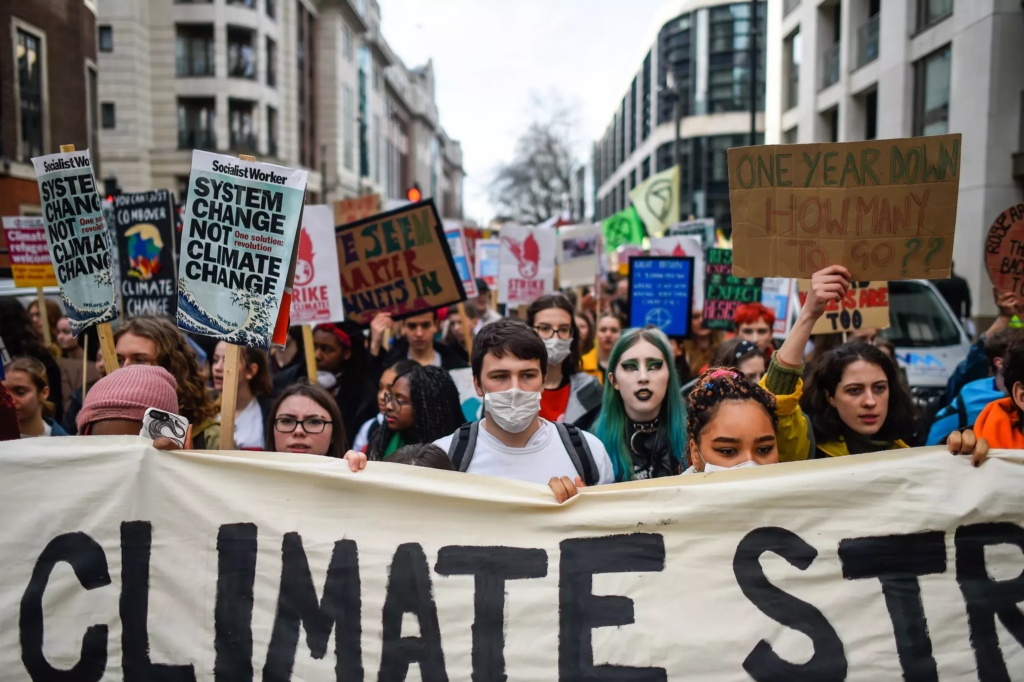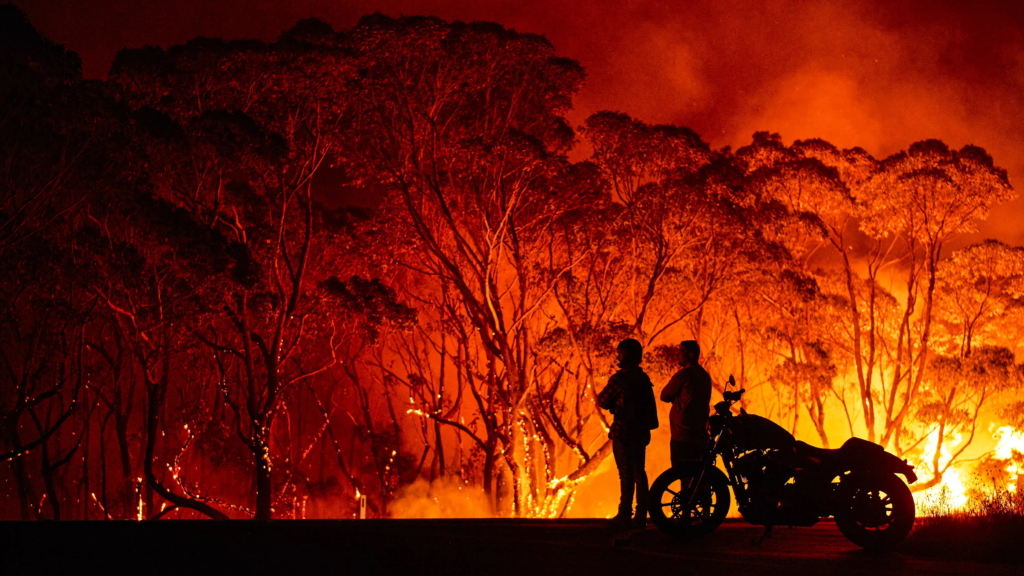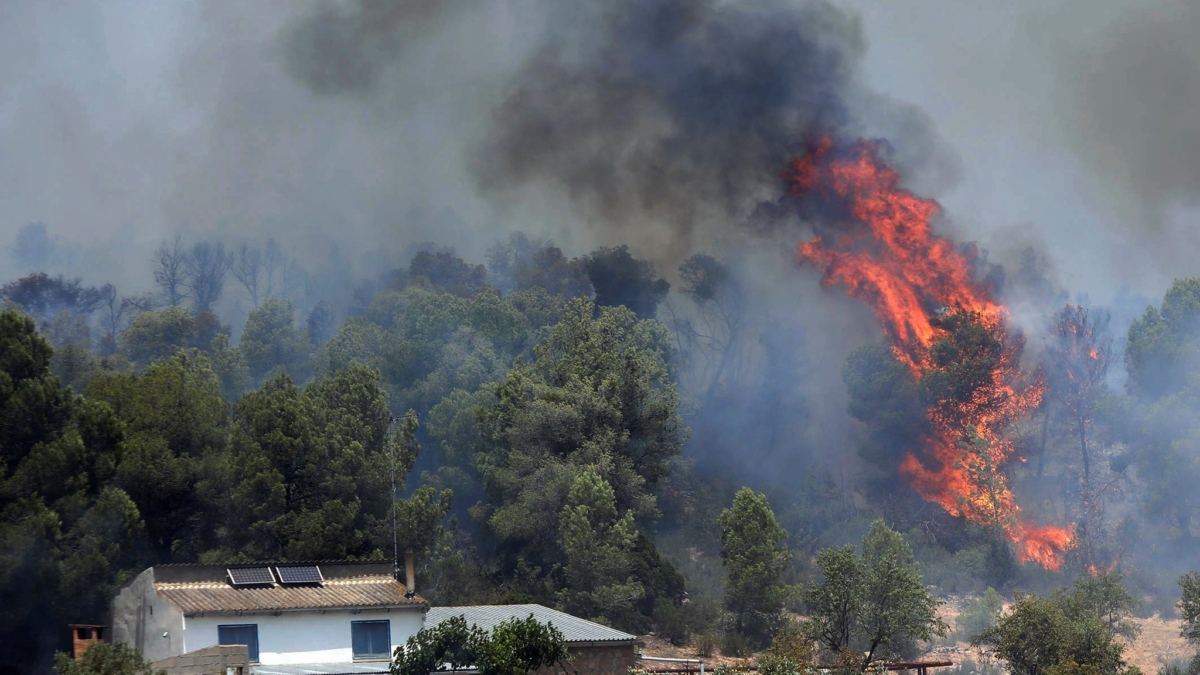15 years after the Kyoto Protocol went into force, the climate crisis is worse than ever – “If the U.S. had been in from the start, it would have been a different trajectory altogether”

By Rosie McCall
16 February 2020
(Newsweek) – The Kyoto Protocol went to force a full 15 years ago today—and yet, the climate crisis is more urgent than ever.
On Sunday, 15 years will have passed since the Kyoto Protocol was ratified on February 16, 2005, which was eight years after it was negotiated back in 1997. Progress stalled because of a failure to achieve the quota of countries required to implement the protocol. The stalemate was finally broken when Russia signed up to the deal: once Russia joined, countries committed to Kyoto produced 55 percent or more of global emissions between them.
The purpose of the protocol was to provide structure to the United Nations Framework Convention on Climate Change, or UNFCCC (1994)—a treaty committing industrialized countries to make efforts to reduce emissions and meet individual targets. The UNFCCC itself was more a set of guiding principles laying down objectives than a concrete set of rules with rigid commitments. The Kyoto Protocol changed this by setting targets. These initially added up to an average 5 percent reduction of greenhouse gas (GHG) emissions compared to 1990 levels to be carried out between 2008 and 2012.
It was the first international effort to tackle the problem of global warming. Today, 192 parties across the world participate in the Kyoto Protocol, with notable exceptions including the U.S.

However, by all objective measurements, it has been deemed to have failed. Emissions continue to rise, breaking records (again) in 2019, while the amount of CO2 in the atmosphere reached 416 parts per million (ppm) for the first time in recorded history on Monday. Current temperatures are at least 1℃ above pre-industrial levels and according to recent projections, we are on course to exceed warming of 4℃ by the end of the century.
What’s more, the Doha Amendment, which was added to the protocol in 2012, has yet to come into force. The intention was to set out a new commitment phase between 1 January 2013 and 31 December 2020 but it never received the 144 out of 192 acceptances required from the parties signed up to Kyoto.
One of the greatest stumbling blocks from the start was the failure of the U.S. to commit—and which occurred for a second time with the Paris Agreement. While the U.S. has typically taken a leading role in international initiatives, there appears to be a strong reluctance to do so in climate-related matters. Just as President Donald Trump took the U.S. out of Paris in 2017, former-President George Bush took the U.S. out of Kyoto in 2001.
“If the U.S. had been in from the start, it would have been a different trajectory altogether,” Michael Lazarus, a Senior Scientist and director of the Stockholm Environment Institute’s U.S. Center, told Newsweek. “There would have been a sense that we were all acting together.” […]

“The ineffectiveness of global action is countries not being ready to act deeply and a global agreement alone is not sufficient to do that,” said Lazarus. “That motivation needs to come from the countries themselves and we are seeing more and more of that.”
“It has to be thought of as a first step and a product of its time,” Steve Herz, the Senior International Policy Advisor for the Sierra Club’s International Climate and Energy Campaign, added. […]
One of the major challenges to emerge is the advent of populist and nationalist politics around the world, Herz told Newsweek.
“The idea that we will be ok if we build walls, if we keep those other people out, if we put our interests firstand that is not a realistic or reasonable solution,” said Herz.
At the same time, the fossil fuel industry continues to channel vast sums into lobbying at high political levels. [more]
15 years after the Kyoto Protocol went into force, the climate crisis is worse than ever


